News archive
On this page you can search for older news. Choose a topic, type of news or enter your own keyword to filter out news.
View compact
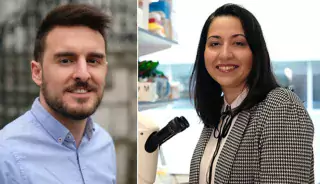
In a new study conducted by researchers at the group Vascular Surgery, Department of Molecular Medicine and Surgery, osteomodulin was identified as a novel biomarker for vascular calcification. The results of the study was recently published in the journal Clinical and Translational Medicine.
News
When she was 14 years old Jessica Strid was treated for cancer and was told that it would be difficult for her to get pregnant. Today she has two children. ”I am very grateful”, she says.
News
Many young people whose fertility have been impaired due to cancer treatment can today be helped to become parents. Kenny Rodriguez-Wallberg, Adjunct Professor at the Department of Oncology and Pathology at Karolinska Institutet and Senior Consultant at Karolinska University Hospital, answers six common questions.
News
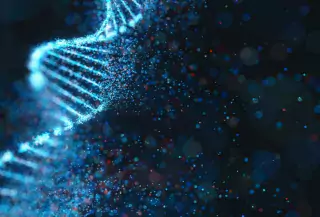
A new study from Karolinska Institutet in Sweden shows how certain RNA molecules control the repair of damaged DNA in cancer cells, a discovery that could eventually give rise to better cancer treatments. The study is published today in the journal Nature Communications.
News
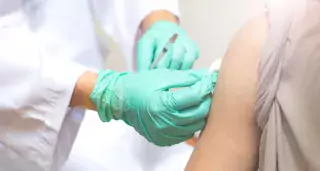
The EU-funded research network Vaccelerate has now opened a European volunteer-registry of study participants for research on COVID-19 vaccines. The aim of this initiative is to boost the capacity for clinical studies on COVID-19 vaccines in the EU, but also to support vaccine research in future pandemics.
News
Depression is a common and serious mental health condition. It causes a wide variety of symptoms, such as feeling hopeless and sad, and losing interest or pleasure in hobbies and activities. To be diagnosed with depression, symptoms must last for at least two consecutive weeks. At its worst, this mental condition can lead to suicide. It is a worldwide psychiatric illness with a wide range of ages of onset, and it occurs about twice as often in women than men.
News
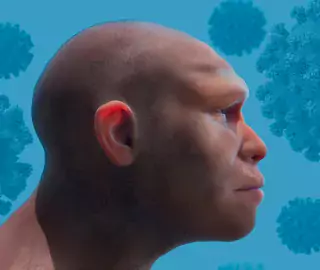
The major genetic risk variant for severe COVID-19, one we inherited from Neandertals, is associated with a 27 percent lower risk of HIV infection. This is according to a new study from Karolinska Institutet in Sweden and the Max Planck Institute for Evolutionary Anthropology in Germany published in the journal PNAS.
News
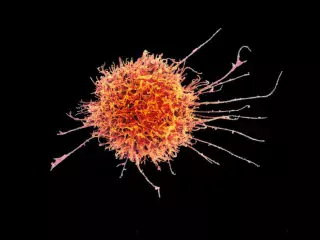
Little has been known to date about how the immune system’s natural killer (NK) cells detect which cells have been infected with SARS-CoV-2. An international team of scientist led by researchers from Karolinska Institutet now shows that NK cells respond to a certain peptide on the surface of infected cells. The study, which is published in Cell Reports, is an important piece of the puzzle in our understanding of how the immune system reacts to COVID-19.
News
KI researcher Lu Yi has been awarded 1.5 million euros from the prestigious European Research Council Starting Grants. The funds will go toward research on different subtypes of depression with the goal of finding treatments that work for more people.
News
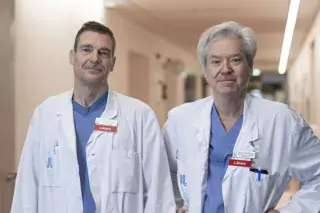
The Thoracic Surgery research group at the Department of Molecular Medicine and Surgery at Karolinska Institutet receives a 15 million SEK donation from the Schörling Foundation. The purpose of the donation is to enforce the development of cardiothoracic surgical technology and methodology and the related research by the group.
News
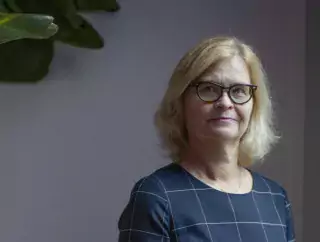
You are the same person inside, although your body is ageing and your memory failing. Professor Maria Eriksdotter hopes to add to our knowledge of Alzheimer’s disease. But she also wants to fight ageism. “The status of the elderly needs to be raised,” she says.
News
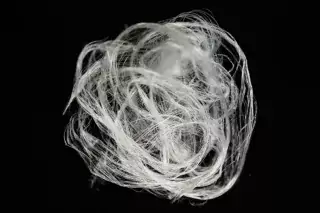
Spider silk is Nature’s high-performance fiber as it combines high tensile strength and large extensibility. A research group at Karolinska Institutet has developed a new and scalable method for producing spider silk proteins and are aiming to scale up the spinning process. Sustainable alternatives to petroleum-based products are needed since the environmental pollution caused by the exploitation of these limited resources is significant.
News
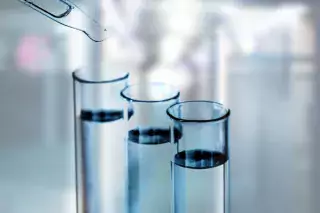
Every day, people are exposed to large number of pollutants, but the problem of how to assess the dangers of the chemical “cocktail effect” has long frustrated both scientists and public authorities. A collaborative study involving researchers from Karolinska Institutet published in the journal Science now presents a new strategy that combines population studies with experiments using cell and animal models.
News
Karolinska Institutet (KI) president Ole Petter Ottersen’s term of office expires on 28 February 2023. The KI University Board (Konsistoriet) has therefore decided to begin an open recruitment process to propose a president and appoint a vice-president to take up office on 1 March 2023.
News
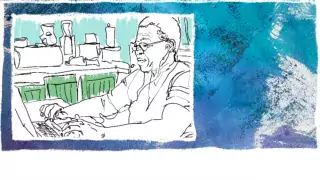
The Best Practice Guidance regarding improved use of technology in dementia care was developed a few years ago, including researchers from the CACTUS research group. In December, an updated version of the Best Practice Guidance was published.
News
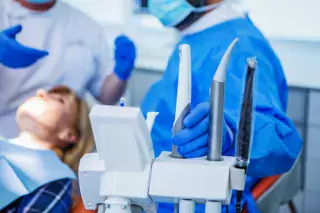
Sweden is one of the few countries that have removed the dental health recommendation to give prophylactic antibiotics to people at a higher risk of infection of the heart valves, so-called infective endocarditis. Since the recommendation was removed in 2012, there has been no increase in this disease, a registry study from Karolinska Institutet published in the journal Clinical Infectious Diseases shows.
News

Researchers from Karolinska Institutet have analysed blood and sperm samples from healthy parents to children with genetic syndromes and the results indicate that germline mosaicism is underestimated as a cause to syndromes and that the level of the genetic variant is higher in sperm than in blood. The study was recently published in Molecular Genetics & Genomic Medicine.
News
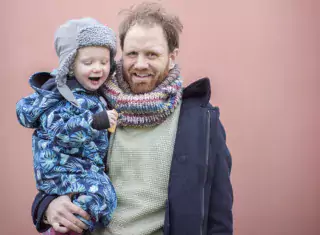
Erik Vismer and his wife sought help from an IVF clinic to get children. What they didn’t expect was the effort and time that the process demanded from them. Read an in-depth article series from KI’s Swedish popular science magazine.
News
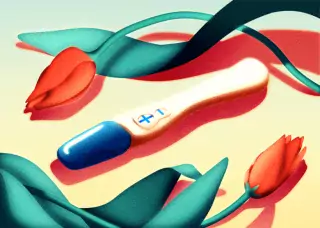
According to the WHO, almost 50 million couples worldwide are involuntarily childless while demand for assisted fertilisation is expected to grow as treatments have become both more effective and more widely accessible. Read the first article from a in-depth series about infertility from KI’s Swedish popular science magazine.
News

Karolinska Institutet will soon be offering a preparatory course for doctors trained outside the EU/EES. The course is being arranged at the request of the Swedish Medical Association, which has been awarded a grant of SEK 5.7 million from the Swedish Public Employment Service to help overseas-trained doctors pass the proficiency test for licensing in Sweden.
News

New investments are now being implemented to strengthen Karolinska Institutet’s position as a pioneering research university. Many of these investments are aimed at more junior researchers and include the KI Research Incubator (KIRI), a virtual forum for multidisciplinary collaboration. Two other initiatives are also in the pipeline – a mentor and coaching programme and a new network to enhance the qualification prospects for female researchers and teachers.
News
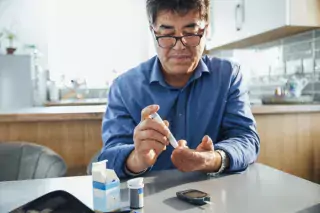
A new study from Karolinska Institutet sheds new light on how diabetes causes tissue damage when oxygen levels drop, and point to the repression of a protein complex as a possible treatment target for diabetes complications. The findings are published in the journal eLife.
News
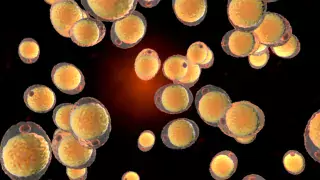
In a new study published in Nature Metabolism, KI researchers show how disturbances in the energy metabolism in human fat cells, can lead to the development of inflammation and insulin resistance.
News
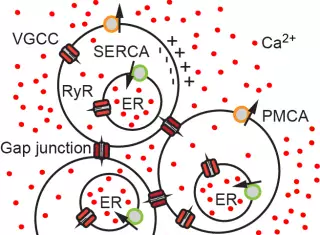
The study, led by Professor Per Uhlén, presents a model and mechanism for how the risk gene CACNA1C can affect brain function and the risk of psychiatric illness.
News
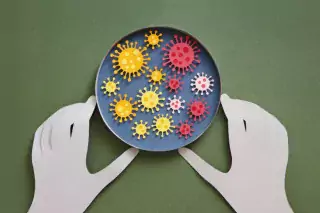
Hopefully we are nearing the end of the pandemic. But the virus is still there and scientists expect that new variants may emerge. Making us more sick, however, is not on the viral agenda.
News
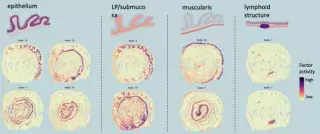
Using a technique called spatial transcriptomics, researchers at Karolinska Institutet have analysed the gene expression in the mouse colon and created a map showing where in the tissue individual genes are expressed. When they superimposed previously known human transcription data onto the map, the researchers gained new insights into inflammatory bowel disease (IBD). The study is published in the journal Nature Communications.
News
On November 17, Occupational Science Europe (OSE) organized its first online conference: ”Everyday life: living and doing in a changing society”. The organization has regularly arranged conferences at various sites, but in these pandemic times the conference went online, something that would prove to be successful in many ways.
News
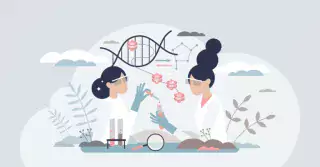
In a new study published in Science, researchers at Yale University, in collaboration with researchers at Karolinska Institutet, have developed a technique that gives very precise information about the location of activated and inactivated genes in a specific tissue. This can provide important knowledge about how different tissues develop and how epigenetic regulation contributes to the development of disease.
News
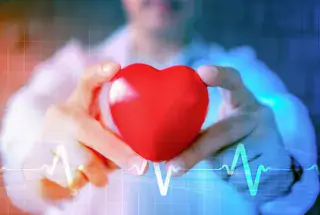
In the largest funding round from the Swedish Heart-Lung Foundation (Hjärt-Lungfonden), researchers at Karolinska Institutet will share a total of 95,776,000 SEK. All in all, approximately 70 projects at KI will benefit from the grant.
News
Over the course of two half-days students, researchers, & implementers from a range of disciplines gathered online to examine matters of inequity and vulnerability in relation to the COVID-19 pandemic in the Nordic countries. The event was hosted by the Nordic Pandemic Network, an interdisciplinary collaboration on COVID-19 & its impact in the Nordic region, which KI is a part of along with The University of Copenhagen, Roskilde University, University of Stavanger & Hanken School of Economics.
News
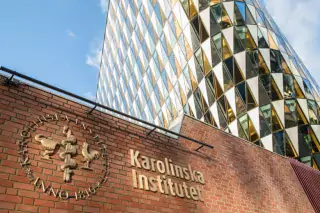
In February, the renovation of the property Fysiologen will begin as part of the life science initiative being conducted at Karolinska Institutet and Hagastaden. The building will be an attractive and modern office environment and laboratory for new operators working in medicine and health and is expected to be completed in 2023.
News
It is estimated that more than 10% of the world’s population live with a psychiatric disorder, with significant impacts on health as well as major social, human rights and economic consequences in all countries of the world.
News
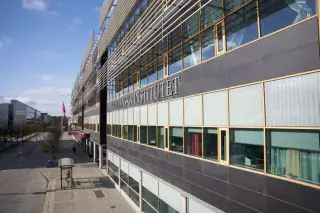
A Working Lab is expanding its activity with a new hub for co-working and shared laboratory environments at Alfred Nobels Allé 10, which is scheduled to open in the spring of 2022. Students, researchers and university employees will be able to meet here and find ways to collaborate and innovate within the field of life science.
News
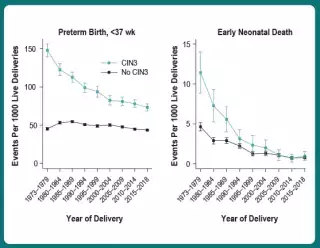
The treatment of serious prodromal cervical cancer, CIN3, can cause problems during later pregnancy amongst women of fertile age. A new registry study from Karolinska Institutet shows a higher risk of several adverse pregnancy outcomes after such treatment, but the risks have declined over time and the increased risk of infant death no longer exists. The study, which included a large number of births in Sweden over a 46-year period, is published in The Annals of Internal Medicine.
News
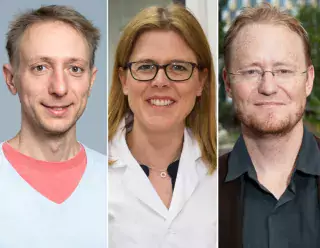
Three research group leaders at Karolinska Institutet receive European Research Council Proof of Concept (ERC PoC) 2022 grants, which are awarded to researchers who already have funding from the ERC and now wish to develop the innovative potential of their discoveries. Projects funded at KI include working towards commercialisation of a new sequencing method and scaling up production of artificial spider-silk textiles.
News
Using novel analytical technique developed at KI, the team of scientists led by Roman Zubarev found in seal bones twice as much deuterium as in sea water; extra deuterium cannot come from seals’ diet.
News
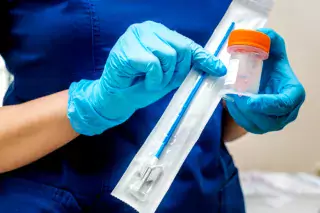
An international team of scientists, including from Karolinska Institutet, has discovered a means of identifying the risk of breast and ovarian cancer by analysing cell samples from the cervix. By measuring epigenetic changes in cervical samples from over a thousand women, the researchers have found two unique signatures for breast and ovarian cancer. The results are presented in two papers in the journal Nature Communications.
News
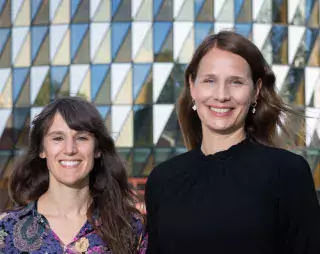
Thanks to a groundbreaking study, leading migraine scientists can better understand the biological basis of migraine and its subtypes and could speed up the search for new treatment of the condition, which affects over a billion individuals wordwide. The new findings, published in the journal Nature Genetics, uncovered more of the genetic architecture of migraine subtypes than was previously known.
News

The StratNeuro board has reviewed the neuroscience submissions to the SLL call “Kliniska Forskare” (2020) and decided to support Mikael Tiger with SEK 500,000, for his project entitled "Optimized treatment for depression: mechanisms of action and response markers and antidepressive effect versus side effects".
News
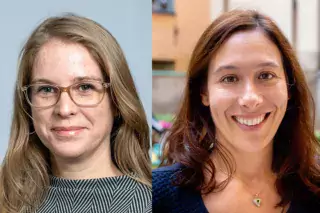
The bridging grant is a funding initiative where StratNeuro, and other strategic research areas (SFOs) at KI, award funding to promising researchers with outstanding scientific merits, giving them the opportunity to consolidate their research.
News
Carl Johan Sundberg, Professor at the Department of physiology and pharmacology and Head of the Department of Learning, Informatics, Management and Ethics (LIME) at Karolinska Institutet, has been awarded the medal "8th size suspended by a blue ribbon" from His Majesty King Carl XVI Gustaf, for his "outstanding contributions as a researcher and educator in health and exercise" .
News
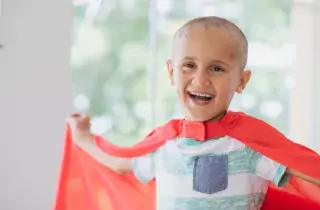
Researchers at Karolinska Institutet and the University of Gothenburg have found another piece of the puzzle in the treatment of the childhood cancer neuroblastoma. A new case report, published in JCO Precision Oncology, describes the successful targeted treatment of a boy with neuroblastoma and a specific mutation.
News
A digital 1-day meeting attended by 300 participants brought neuroscience researchers from across Europe together to reflect on both progress to date and plans for the future for the collaborative European University Initiative (EUI) focusing on neurochallenges. Karolinska Institutet is one of eight original parnters.
News

The late professor Sten Orrenius will be honored with a research symposium on 14 February 2022 - at the 85th anniversary of his birth.
News
Congratulations to Rimma Axelsson, who was appointed Professor of Nuclear Medicine at the Department of Molecular Medicine and Surgery, Karolinska Institutet, on February 1, 2022.
News
As a strategic investment, the Swedish Childhood Tumor Biobank will be allocated SEK 12 million for whole-genome sequencing of tumor and blood samples not yet analysed in the sample collection. The annual grant is increased to SEK 19 million for 2022. The GMS Childhood Cancer project receives multi-year support of a total of SEK 24 million. A project coordinator to enhance collaboration with the pediatric leukemia sample collection in Uppsala will be appointed, as a further strategic investment.
News
Two Karolinska Institutet researchers are part of projects awarded grants from the European Innovation Council (EIC), marking KI’s first contribution from this EU funding program since its launch last March. The researchers will receive a total of close to 1.15 million euros (11.8 million Swedish kronor) that will go toward research projects on epilepsy and chip-based nanoscopy.
News
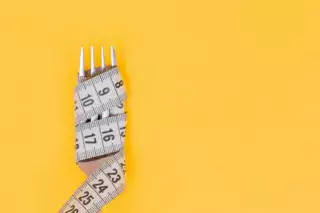
KI researcher Myriam Aouadi is awarded the Leif C. Groop award for her research about the mechanisms behind the development of non-alcoholic fatty liver disease in obese individuals with type 2 diabetes.
News
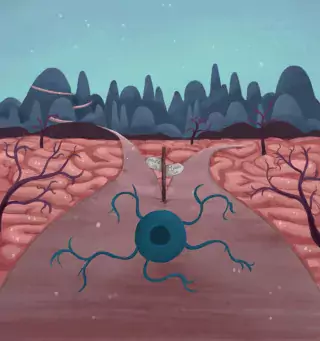
An international team of researchers led by Karolinska Institutet in Sweden have discovered that a cell type in the central nervous system known as oligodendrocytes might have a different role in the development of multiple sclerosis (MS) than previously thought. The findings, published in the journal Neuron, could open for new therapeutical approaches to MS.
News
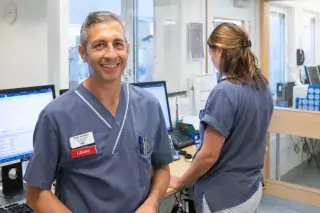
A new study is due to examine whether the post-infarction prognosis can be improved by treating the stomach ulcer bacterium helicobacter pylori. The study is to be led by Robin Hofmann, cardiologist and researcher at the Department of Clinical Research and Education, Stockholm South General (Söder) Hospital, Karolinska Institutet.
News
